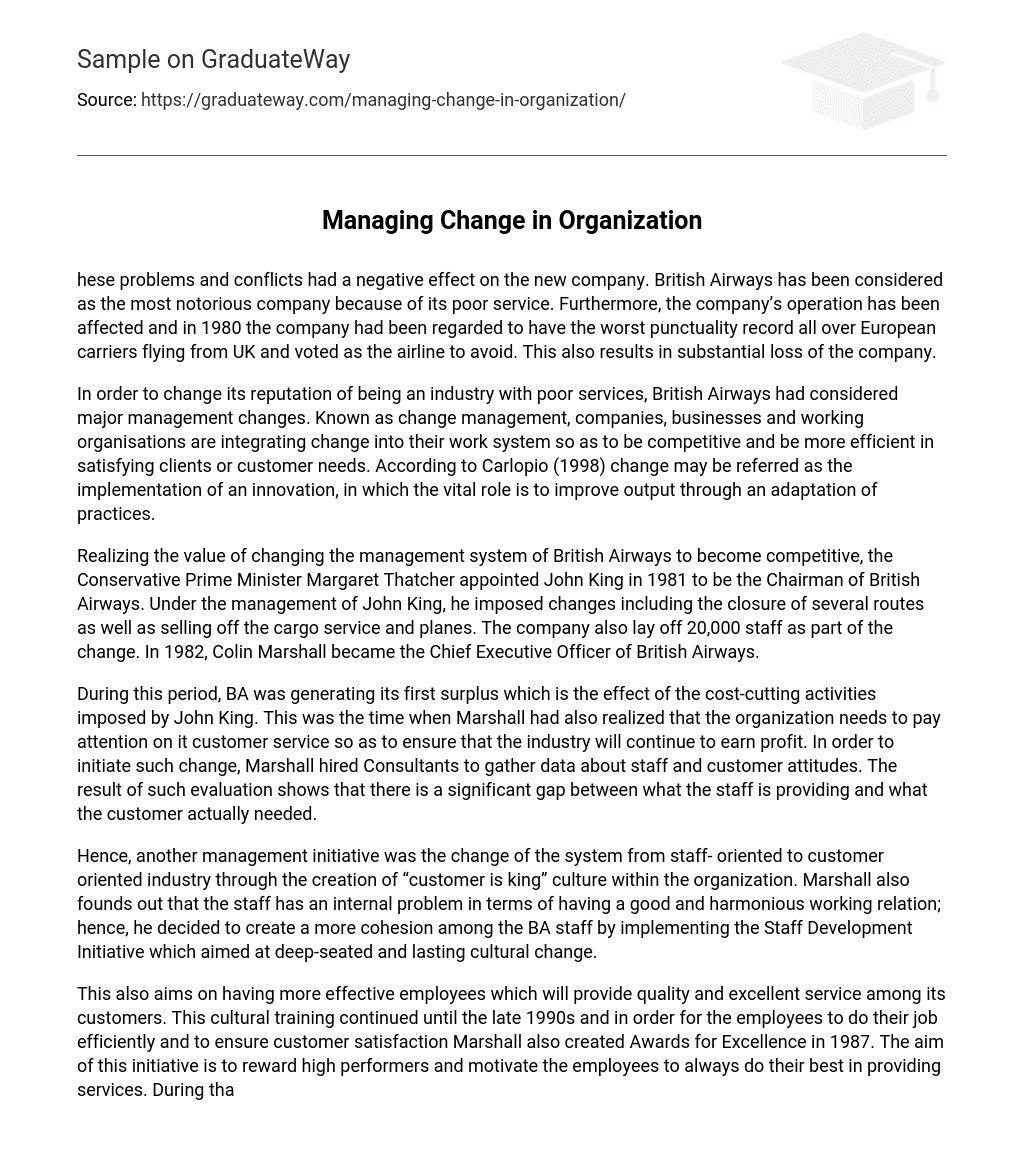hese problems and conflicts had a negative effect on the new company. British Airways has been considered as the most notorious company because of its poor service. Furthermore, the company’s operation has been affected and in 1980 the company had been regarded to have the worst punctuality record all over European carriers flying from UK and voted as the airline to avoid. This also results in substantial loss of the company.
In order to change its reputation of being an industry with poor services, British Airways had considered major management changes. Known as change management, companies, businesses and working organisations are integrating change into their work system so as to be competitive and be more efficient in satisfying clients or customer needs. According to Carlopio (1998) change may be referred as the implementation of an innovation, in which the vital role is to improve output through an adaptation of practices.
Realizing the value of changing the management system of British Airways to become competitive, the Conservative Prime Minister Margaret Thatcher appointed John King in 1981 to be the Chairman of British Airways. Under the management of John King, he imposed changes including the closure of several routes as well as selling off the cargo service and planes. The company also lay off 20,000 staff as part of the change. In 1982, Colin Marshall became the Chief Executive Officer of British Airways.
During this period, BA was generating its first surplus which is the effect of the cost-cutting activities imposed by John King. This was the time when Marshall had also realized that the organization needs to pay attention on it customer service so as to ensure that the industry will continue to earn profit. In order to initiate such change, Marshall hired Consultants to gather data about staff and customer attitudes. The result of such evaluation shows that there is a significant gap between what the staff is providing and what the customer actually needed.
Hence, another management initiative was the change of the system from staff- oriented to customer oriented industry through the creation of “customer is king” culture within the organization. Marshall also founds out that the staff has an internal problem in terms of having a good and harmonious working relation; hence, he decided to create a more cohesion among the BA staff by implementing the Staff Development Initiative which aimed at deep-seated and lasting cultural change.
This also aims on having more effective employees which will provide quality and excellent service among its customers. This cultural training continued until the late 1990s and in order for the employees to do their job efficiently and to ensure customer satisfaction Marshall also created Awards for Excellence in 1987. The aim of this initiative is to reward high performers and motivate the employees to always do their best in providing services. During that year, Brainwaves, a suggestion scheme was also introduced.
Part of the changes imposed by Marshall is its integration with Lancaster University to provide MBA course for its employees. This is a part of the cultural training imposed by the company to make its employees more effective is providing services to its target market. In addition, the organizational structure of British Airways also changes to a much flatter and slimmer structure. Five sections of the industry are directly reporting to the CEO and eleven profit centres were created.
This structural alternation aims to enhance the staff integration and communication, within BA. The performance-related pay was also introduced by the management based on an appraisal system which values the significance of customer service and organizational cohesion. This change also includes major investments in planes, ground facilities and IT in order to adhere to the needs of its customers. It can be said that the major management change happened within BA is when the industry has been privatized in 1987 and took over British Caledonian Airway in 1988.





